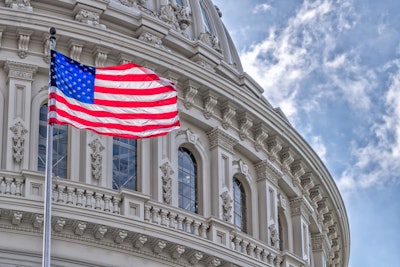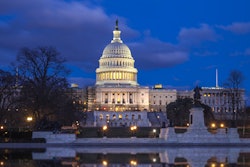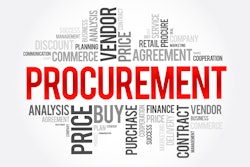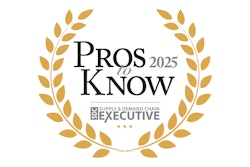
With elections comes shifts in government policies and that means procurement teams must proactively prepare for potential changes that could affect supply chains, regulatory environments and market dynamics. The post-election landscape can bring new trade agreements, tax structures, tariffs, environmental regulations and more, which require active procurement strategies.
As the countdown to election day begins, Etosha Thurman, chief marketing officer of Intelligent Spend and Business Network at SAP, explains that although procurement and supply chain departments are starting to recover from inflation, the pending U.S. election signals the possibility of quick changes.
"One potential impact we could see is new trade restrictions being implemented quickly. As such, companies should be planning now, researching potential alternative suppliers on shore or in other countries where there is less political and trade tension. They should also begin considering possible capacity constraints, logistics implications and import tariffs," says Thurman.
Both administrations describe various incentives. Where procurement is concerned, there is the possibility of new domestic incentives that make it more appealing to produce and buy domestically. For example, Thurman says, tax incentives like the domestic content bonus credit for building with steel, iron or manufactured products that were mined, produced or manufactured in the United States can offset cost increases of moving production from a lower cost country.
"In the past few years, procurement teams have demonstrated that they are well versed at navigating constantly fluctuating macroeconomic conditions. An Economist Impact survey found that one out of three C-suite executives identify geopolitical dynamics and impacts as procurement’s top priority for organizational risk in the next 12-18 months. It’s clear that procurement teams play an important role in helping their companies navigate through times of change," explains Thurman.
A well-prepared procurement function will not only weather potential disruptions but also seize new opportunities that emerge in the evolving political and economic landscape. Staying informed, agile and technologically equipped means procurement teams can navigate post-election changes with confidence, ensuring businesses and supply chains remain competitive and resilient through transitions of power.




![Pros To Know 2026 [color]](https://img.sdcexec.com/mindful/acbm/workspaces/default/uploads/2025/08/prostoknow-2026-color.mduFvhpgMk.png?auto=format%2Ccompress&bg=fff&fill-color=fff&fit=fill&h=100&q=70&w=100)







![Pros To Know 2026 [color]](https://img.sdcexec.com/mindful/acbm/workspaces/default/uploads/2025/08/prostoknow-2026-color.mduFvhpgMk.png?ar=16%3A9&auto=format%2Ccompress&bg=fff&fill-color=fff&fit=fill&h=135&q=70&w=240)





